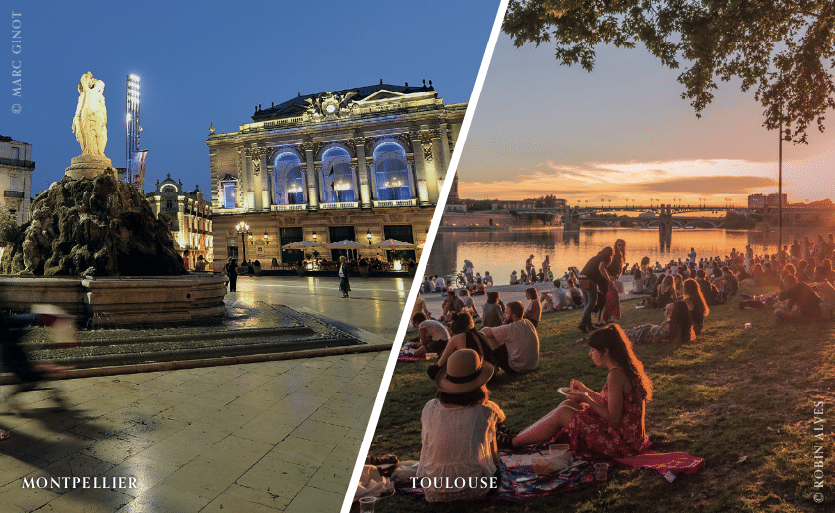From the wild landscapes of the Petite Camargue to the creeks of the Côte Vermeille, Occitania boasts a unique 220km-long Mediterranean coastline, home to a host of unspoiled treasures, such as the village of Collioure, the scuba diving areas around Cap d’Agde, or the Lido promenade near the port of Sète, among many others. If Toulouse and Montpellier are Occitania’s most famous cities, the region also houses a diverse array of towns that make the area particularly attractive to visitors and delegates alike.
No wonder that the vast majority of the professionals of Occitania’s business events industry are committed to respecting the environment any way they can. For Occitanie Events, which manages the Sud de France Arena and the Exhibition Park in Montpellier, it all began with listening to its stakeholders, event organizers, service providers and professional organizations. A survey of the general public was carried out, too, in order to find out the areas which should be prioritized in terms of sustainability. Employees of the company were also able to express themselves on the issues that should be committed for, and from this, conclusions were drawn, and key areas emerged: waste management, responsible and local food production, clean energy and positive societal impact.
In this context, the ISO 20121 certification, a voluntary international standard for sustainable event management created by the International Organization for Standardization, is set to be completed by the end of the year. This initiative is, of course, strongly supported by Club Business Occitanie, which brings together key business tourism providers throughout the Occitania region — your go-to for hosting your professional events and ensuring their success.
This article was written by Boardroom Chief Editor Remi Deve. The right to use it, in parts or in full has to be granted by the Publisher.
The Ann’events agency is another telling example of Occitania’s green conscience. Well aware organizers should minimize the impact of their events on the environment, they have developed a “carbon calculator” which can study the CO2 emissions of any meeting they are in charge of. These calculations are carried out based on the principles established by the French Environment and Energy Management Agency (ADEME).
After analysis, several areas of CO2 are identified, on which it is possible to act in order to reduce the overall carbon footprint of the event, with transport often constituting the major factor of carbon emissions. The aim of Ann’events is to then find ways to avoid this type of emissions —shifting towards a zero waste policy is just one solution for instance— or at least reduce it through several actions —activities with low carbon footprint are, in this context, an option. What cannot be avoided or reduced can be compensated by actions taken locally on biodiversity.
